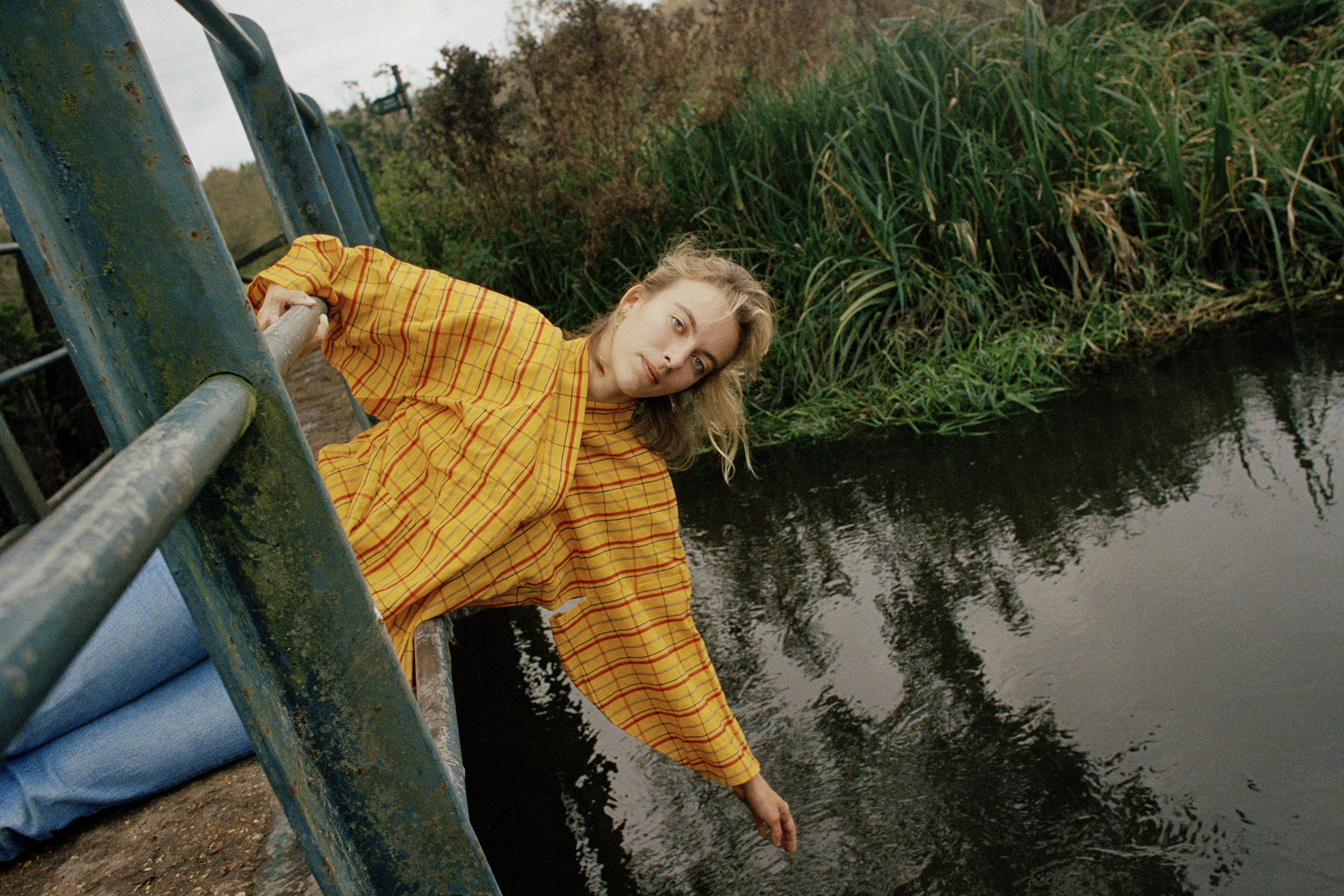“We’ve had to reimagine these songs over and over again”: Naima Bock on making one of 2022’s best albums
The South London songwriter, along with collaborator Joel Burton, opens up about the remarkable Giant Palm

As a founding member of the kinetic indie rock group Goat Girl, South Londoner Naima Bock packed a lot into her teens and early 20s. The chaotic nature of being a young person in a touring band was intense, and after the promotional cycle for the first Goat Girl album finally drew to a close, Bock decided to leave the band – and, for a time, the music industry altogether.
An extended period of self-discovery followed, involving university, gardening work and travel around some of “the world’s great trails”, one of which was an exploration of the Camino de Santiago, a 500-mile pilgrimage route through the Iberian Peninsula and southern France. This sense of geographical scope and cultural variety permeates the entirety of Giant Palm, the solo album with which Bock returned to music this year. As well as the pastoral and intellectual breadth of her recent experiences, the record is heavily influenced by both the aesthetics of traditional British folk and the harmonic textures of the Latin American standards introduced to her by her Brazilian family. The result is a lush, quietly unpredictable work of inquisitive, free-floating songcraft, among the most understatedly beautiful we’ve heard in 2022. I spoke to Naima Bock and her close collaborator Joel Burton (producer and arranger of Giant Palm) to reflect on the album and this breakthrough year for her as a solo artist.
Luke Cartledge: Having experienced the music industry with Goat Girl and then taken some time out, what did you expect from this (very different) solo album?
Naima Bock: I feel that being in a young, punky rock band lends itself to a raucous energy around touring; this fun chaos – but now all of us are a bit older and we approached it quite considerately. Like a job, but in a nice way – not like it’s a chore, but we were more mindful. And that’s what felt different to being in a vibey, fun rock band. It’s more intentional and more emotional. Touring this, every night feels like a therapy session.
But in terms of the music industry, it’s all the same heads – coming back after taking a break, it’s nice to see all the people again, who support music despite it making no one any money. I feel like industry people get a bad rep but all I’ve experienced is a huge amount of support from very hardworking team members who get no real payoff.
LC: How did you two start working together, and what led to the deal with Sub Pop?
NB: I was aware of Joel’s music before meeting him; I supported [his band] Viewfinder at their last gig and we agreed to work together – well, he agreed to work with me. Josh Cohen [from DIY label Memorials of Distinction] helped put us together. He wasn’t my official manager, but we were friends, we started a gardening company together, with our friend George – calling ourselves the Avant Gardeners – but he heard the music and just started sending it to people.
Joel Burton: I remember we were walking through Hilly Fields park and Josh, in a way only he could say, just went “I’m managing this now by the way.”
NB: Our ambitions weren’t that high – I was starting university, and music wasn’t really in my field of vision for the future; I wasn’t sure what to do with it. But he was sending it out to loads of record labels, and we got three offers, but Sub Pop seemed the best fit.
JB: I felt quite excited about it, but it all felt very serendipitous – we weren’t bashing it out, we were led into it by chance.
NB: It was a tight timeframe for other people to come in and do their parts – we only had the studio for a week. They’re all our friends and it was lovely that people came in and wanted to chat, but we had to be a bit strict about it. We didn’t drink much alcohol when we were making it, so we could cycle home every night and get a good night’s sleep. It’s like touring, you have to pre-empt things and sacrifice that instant gratification.
LC: There are so many audible influences on the record, from such a variety of contexts – how did you balance them to make something coherent?
JB: I consider myself as a bit of a musical sponge, taking in loads of stuff – once you wring that out, you get the record.
NB: Joel had some references he wanted to put in, some specific hints to things, but just as a way of describing a certain sound. But in terms of songwriting I was influenced but didn’t have direct references – I didn’t want to rip anyone off.
LC: How do you feel about the album now, a few months on from release?
NB: I’ve definitely moved on, but I look back on it fondly. I still actually quite like the songs – they don’t make me sick – but I don’t actually listen to the album at all. But touring the songs helps keep you in them for a bit longer, which I’m not complaining about; it’s a way of experiencing them in a completely different way, in lots of different live setups. We’ve had to reimagine these songs over and over again anyway.
Lead photograph by El Hardwick